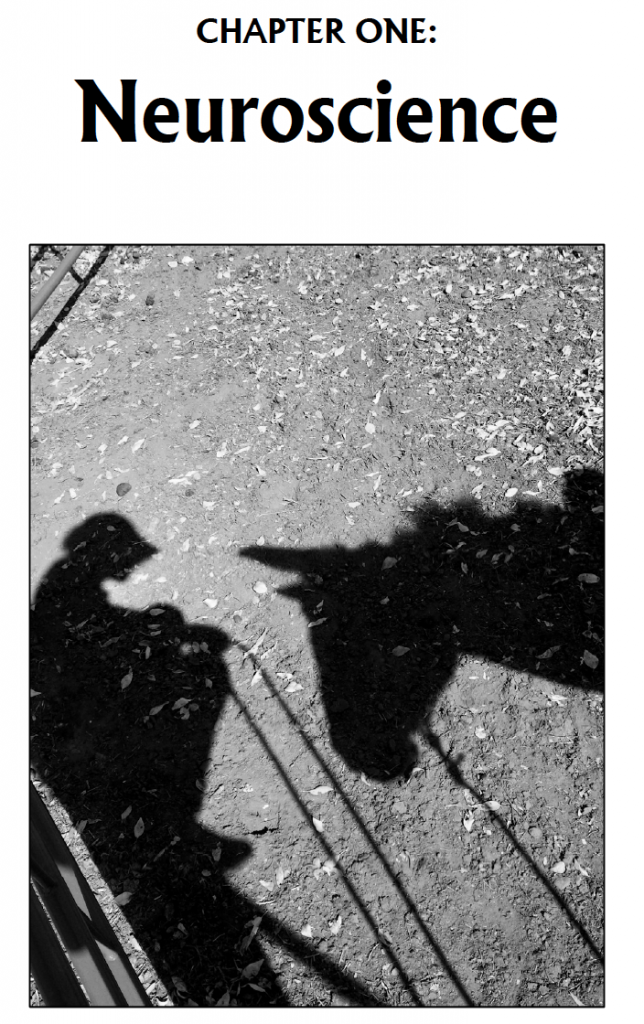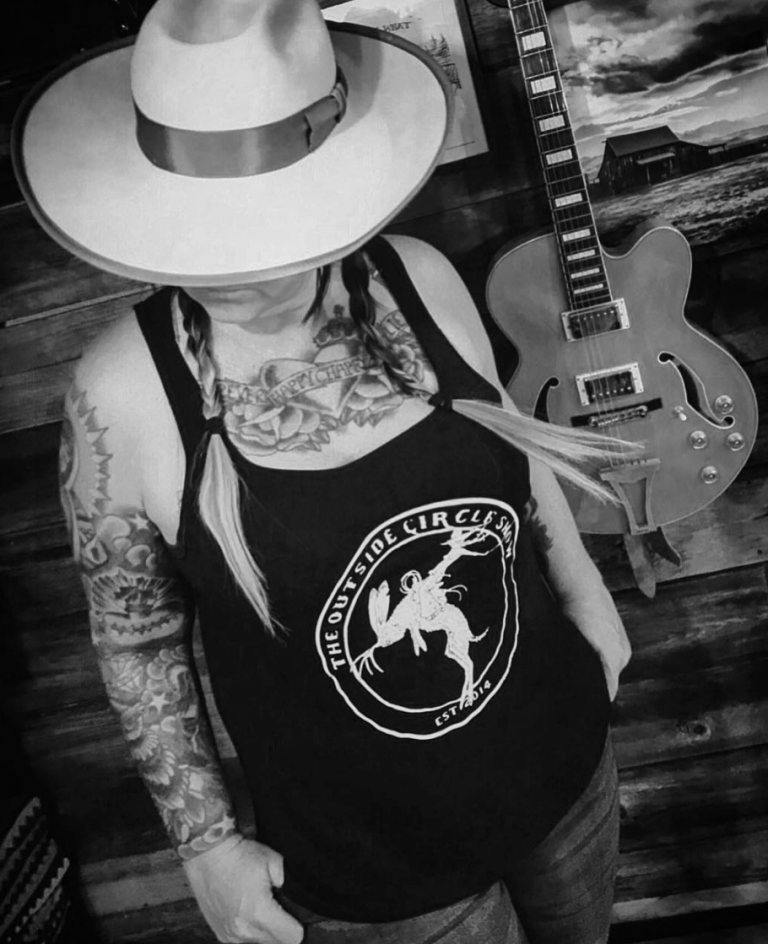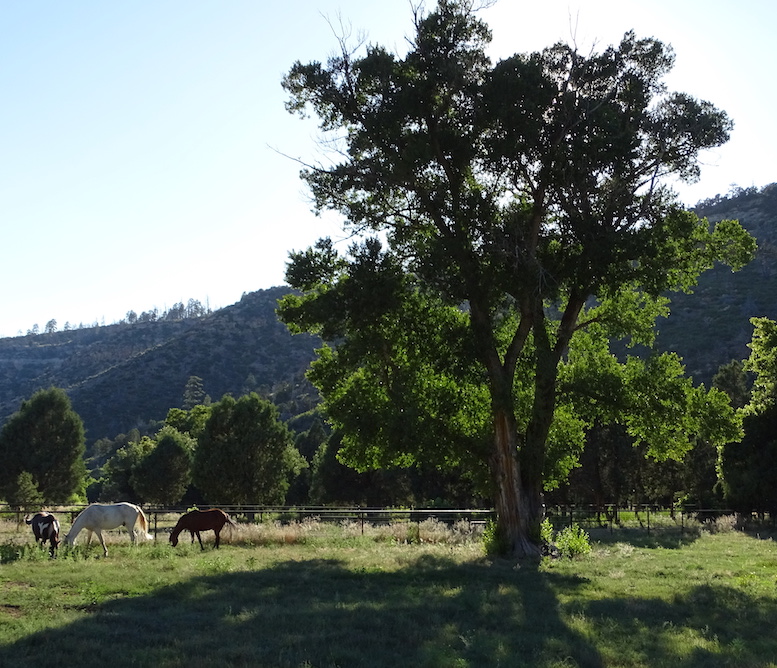
A quiet moment for me and Jolene
A funny thing happened this week. I got an email from Adrian Renton, a doctor and musician based in London. He asked for permission to use my image of Jolene (at right), featured in Horse Head: Brain Science & Other Insights. It would help illustrate the CD liner for Albion’s Darkness, a new album by his band, the Wicca Men, he said.
How did you find the image? And what kind of music do the Wicca Men play? I asked.
A wonderful, transatlantic correspondence followed in which I learned about the man and the band. The banter spurred me to consider connections to the greater world, connections I too often avoid or ignore.
We horse owners get to escape from the world’s troubles every day. We can head out to our equine partners, sink our faces into their manes, breathe in their scent, and hug their velvet warmth. We can step up into the saddle and unite our bodies (and ideally our minds, too) as we ride out together.
These are unique and constant gifts for us lucky horse owners. I consider privilege and escapism to be part of our horse-y culture, but Adrian’s emails prompted me to consider how horse immersion and dedication might just lead us to eschew greater concerns.
The Wicca Men cover The Moving On Song, written by Ewan McColl in 1964. It addresses bias against gypsies and travelers over the centuries in England:
Born in the middle of the afternoon
On a horse-drawn wagon on the old A5.
The big twelve-wheeler shook my bed,
“You can’t stop here” the policeman said,
“You’d better get born in someplace else;
So move along, get along, move along, get along, go, move, shift!”

Wicca Men’s upcoming album
That same day, I listened to an interview with Ibram X. Kendi, a professor at American University and author of “How to be an Anti-Racist.” He pointed out the tectonic difference between being an anti-racist and saying “I’m not a racist.” The former is pro-active. The latter is denial.
That same day, I thought back to visits to Boston’s Holocaust Memorial, where Martin Niemöller’s writings are carved into marble:
First they came for the Communists
And I did not speak out
Because I was not a Communist
Then they came for the Socialists
And I did not speak out
Because I was not a Socialist
Then they came for the trade unionists
And I did not speak out
Because I was not a trade unionist
Then they came for the Jews
And I did not speak out
Because I was not a Jew
Then they came for me
And there was no one left
To speak out for me
Niemöller was a German Lutheran pastor who initially supported Adolf Hitler before speaking out against the Nazis. He was imprisoned at the Sachsenhausen and Dachau concentration camps.

Nicole Grady and the Outside Circle Show
Just as it’s easy to stay within our comfort zones when riding, we can stick there on grander planes, too. We can sink our faces into that rich, wonderful feel and smell of our horses and let the moment wall out today’s news and society’s ills. We can let horse talk – about our last ride, about flies, about hoof treatments – dominate the conversation. But to what end?
We must stretch ourselves to connect with people who aren’t just like us. Social justice and human rights don’t not have anything to do with horse owners. As much as we’d like to escape them, these issues are linked, sometimes directly, sometimes indirectly, to our horse-loving world.
The degrees of separation are small for me. Take immigration and bias against immigrants: my sons’ dad was an immigrant. My dear guest columnist, Katrin Silva, immigrated to the States, too.
As a horse-owning population on the decline, it’s in our best interest to reach out to new riders, to new audiences, and to embrace change. There’s momentum here:
HorseNation celebrated Martin Luther King, Jr. Day and wrote here about our need for outreach:
“…Why? Because as open spaces for riding and horse farms vanish, equestrian sports constantly stand on the edge of being dropped from the Olympics and therefore the public’s attention, and extreme animal rights activists seeking to ban everything from bits to shoes to horseback riding altogether, we as a horse community need to grow, to reach new audiences and to introduce another generation of riders to keep our sport going strong. A diverse equestrian community is a strong equestrian community, and it’s time to open the doors of opportunity to all.”
Next year’s National Cowboy Poetry Gathering’s event will dedicate sessions to African Americans in the cowboy world.
The Outside Circle Show celebrates cowboys of all stripes and colors. Read horsewoman Nicole Grady’s editorial.
Reach out. Your ride will still be awesome. Your horse will smell just as sweet.

Thanks, Maddy, for reflecting on reaching outside our comfort circle and see the bigger picture